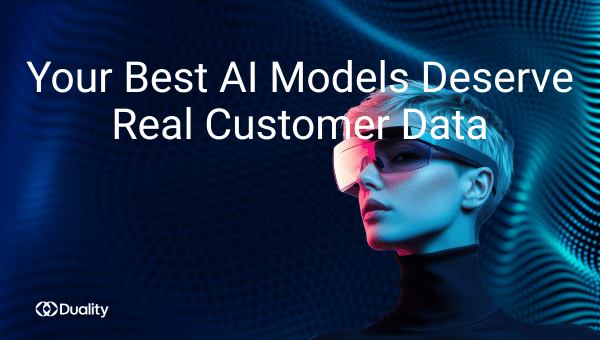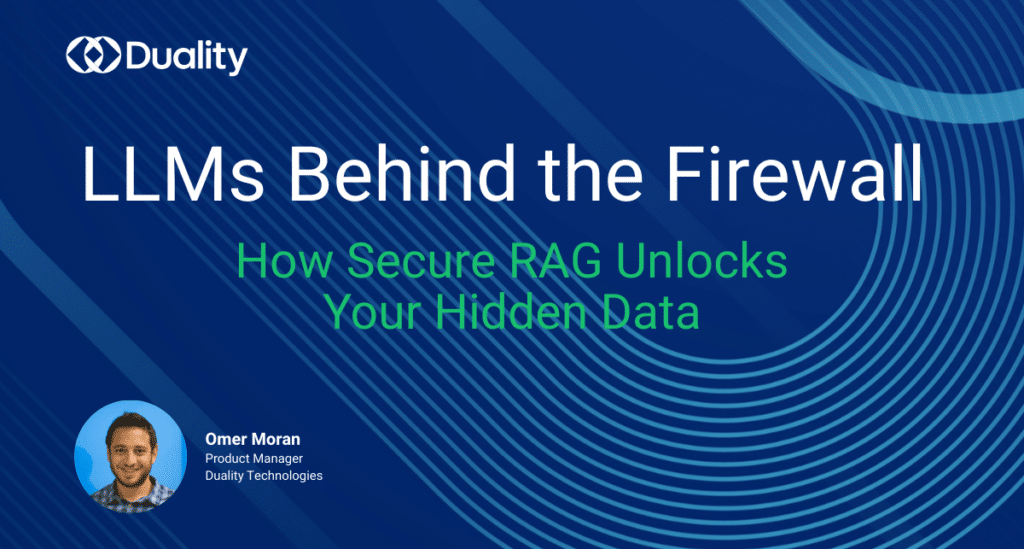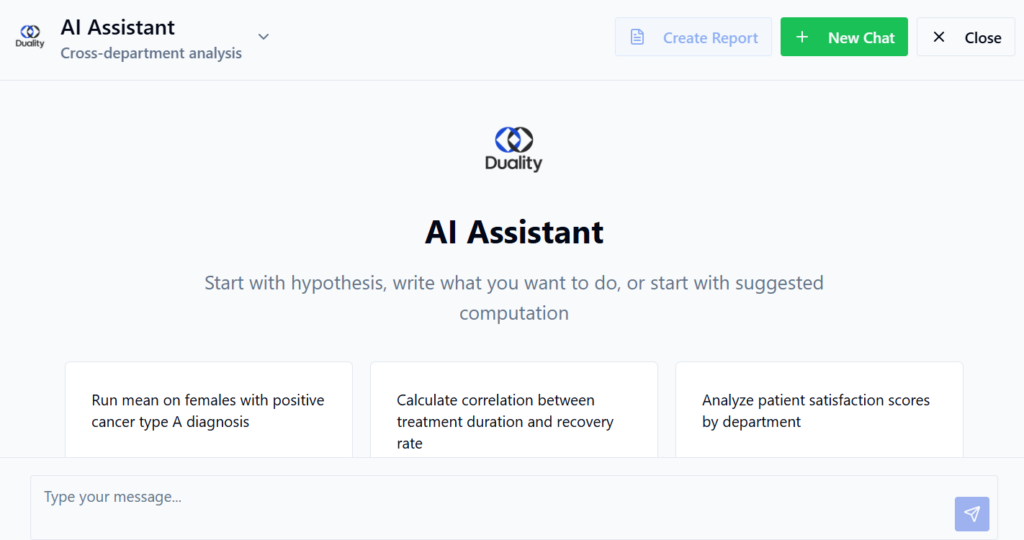- Platform
-

Platform Overview
-
Platform Overview
Secure data collaboration and analysis
Learn More Duality Zero Footprint Query
Encrypted queries on Secured Datasets
Duality AI
Privacy protected AI development and monetization
Duality Assistant Agent
AI-Powered Research with Built-in Privacy
Federated Analytics
Compute Sensitive Statistics Across Siloed Datasets
-
-

Technology
-
- Solutions
-
Government
-
Government Overview
Institute privacy preserving data collaborations
Learn More Zero Footprint Investigations & Intelligence
Accelerate Secure Government Investigations
Cross Domain Zero Footprint Investigations & Intelligence
Access and Analyze Data Across Trust Boundaries
Cross Departments Analytics
Cross-departments and ministries secure data collaboration
AI for Strategic & Tactical Defense
Responsible AI for strategic defense superiority
Unlock Military Health Insights
AI-Driven Military Health Readiness Without Data Risk
Secure Semantic Search
Confidential investigations across any data type
Border Threat Detection
Detect threats without compromising national sovereignty
-
-
Healthcare
-
Healthcare Overview
Fuel research, discovery, and better patient outcomes
Learn More GWAS
Boost data volume and variety with secure collaboration
Oncology Research
Utilize large-scale data from multiple medical centers privately and securely.
Real World Evidence
Accelerate multi-center studies while ensuring privacy
Cross Border Health Analytics
Safely collaborate across borders
-
-
Financial Institutions
-
Financial Services Overview
Complete picture of risk, transactions, and clientele
Learn More Fraud Prevention
An industry-wide approach to fight fraud
Risk Scoring
Improve the accuracy of risk scores models
Anti-Money Laundering
Data collaboration to fight money laundering
Trade Financing
Collaborate to mitigate trade finance fraud
KYC Compliance
Know Your Customer solutions for banks
Trial AI Models
Accelerate Innovation in AI with Confidential Trials
-
-
Marketing
-
Data Service Providers
-
Data Service Provider Overview
Open and accelerate revenue for data and AI
Learn More Trial AI Models
Accelerate Innovation in AI with Confidential Trials
Data Monetization
Turn Sensitive Information Into Data Products
Customize GenAI Models
Unlock opportunities with foundational Gen-AI with confidential computing
-
-
Manufacturing
-
Insurance
-
Insurance Overview
Navigate Insurance claims without exposing data
Learn More Underwriting & Pricing
Collaborate on risk assessment models across institutions
AI Implementation
Scale AI adoption while ensuring compliance
Cross Border Insurance Operations
Manage policies, claims, and risk assessments across jurisdictions
Claims Processing
Automate claims processing to reduce overhead
Regulatory Reinsurance and Reporting
Improve transparency while maintaining confidentiality
-
-
- Partners
- Resources
- Company













